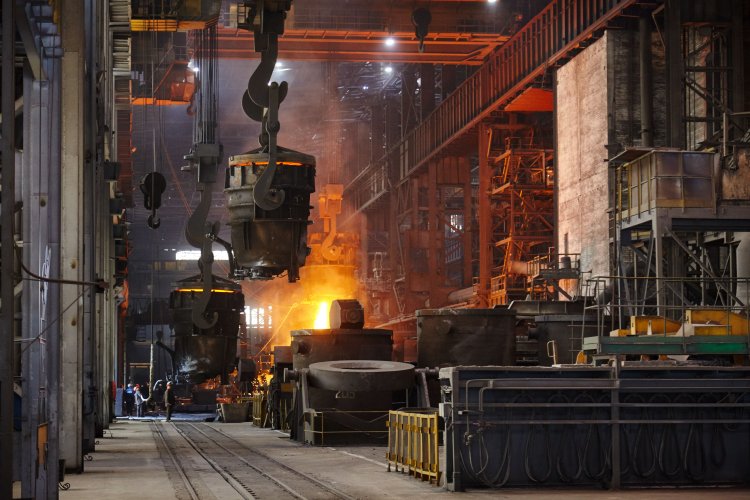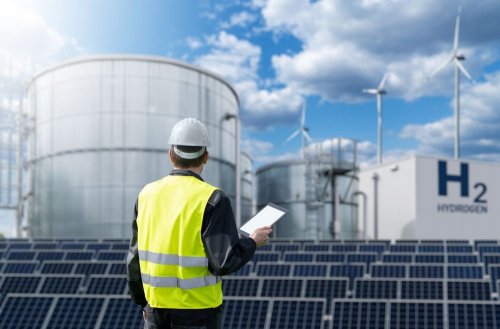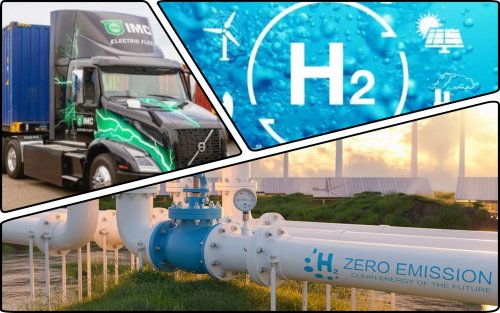The steelmaker British Steel is conducting a major study into the use of green hydrogen in the company’s drive to decarbonise its operations and manufacture net zero steel.
The company has pledged to deliver net zero steel by 2050 and significantly reduce its CO2 intensity by 2030 and 2035, writes The Northern Echo.
The company's ambitious plans were backed by the UK government, which provided funding for a feasibility study into switching from natural gas to green hydrogen as a fuel source for re-heating furnaces.
If the study is successful, British Steel will undertake an industrial-scale demonstration which could see the technology developed and rolled out across all its operations including its main manufacturing base in Scunthorpe. It could also be adopted by other UK steelmakers.
British Steel’s Environment and Sustainability Director, Lee Adcock, said: “As an energy intensive industry with hard to abate emissions, the steel industry offers the potential for large CO2 emission savings through fuel switching from natural gas to hydrogen".
He also said the company is grateful for the government’s support and look forward to working with our partners to reduce the carbon intensity of our operations, enabling us to manufacture the clean, green steel society needs.
British Steel won funding for the research from the UK Government’s Net Zero Innovation Portfolio (NZIP). The NZIP funding from the Department for Business, Energy & Industrial Strategy (BEIS) provides funding for low-carbon technologies and systems.
With its partners, British Steel is now undertaking a 6-month study based on operations at its Teesside Beam Mill.
The study links into the Tees Green Hydrogen project – a pioneering scheme that will use green electricity from the nearby Teesside Offshore Wind Farm along with a new solar farm, which EDF Renewables UK intends to construct near Redcar, to power its hydrogen electrolyser.
Tees Green Hydrogen will supply local business customers with hydrogen to support decarbonisation efforts and a significant reduction in industrial pollution.
British Steel’s Head of R&D, Dr Gari Harris, said: “As part of the feasibility study, EDF UK R&D will carry out a technoeconomic assessment of the methodology and practicality of delivery of green hydrogen for fuel switching into the steel manufacturing process, and British Steel will assess the technical implications of the fuel switch on both product and process.
"Together the partners will carry out an assessment of the economic viability and environmental impact of switching from natural gas to hydrogen in defined aspects of steel manufacturing. The Materials Processing Institute and UCL will also play a role in aiding in the assessment of the product and process viability for British Steel”.
Energy and Climate Change Minister Greg Hands said: “As we accelerate the UK’s energy independence by boosting clean, home-grown, affordable energy, it’s crucial that our industries reduce their reliance on fossil fuels.
In his opinion, this investment will help them to not only cut emissions, but also save money on energy bills, on top of supporting jobs by encouraging green innovation across in the UK.
Before EcoPolitics reported that the Italian steel company Acciaierie Bertoli Safau (ABS), which is a division of equipment manufacturer Danieli, and its Croatian subsidiary ABS Sisak will invest €200 million to ensure a competitive and ecological steel production at a plant in Croatia.





